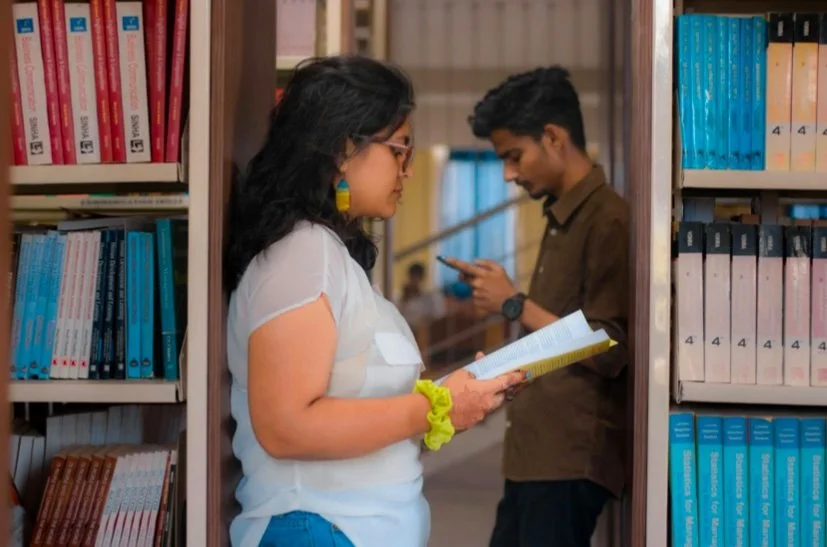From India to the USA: The Indian Student’s Complete Roadmap for College Admissions
Written by Brandon, Brown University
Applying to colleges in the United States can be an exciting yet daunting process for Indian students. The educational systems in India and the US differ significantly, and understanding these differences is crucial for a successful application. This guide will provide detailed advice on applying to US colleges, writing compelling essays, and navigating the application process effectively.
Understanding the US Education System
The US education system is structured differently from that of India, which is essential for students to grasp before embarking on their college journey.
Types of Institutions: In the US, students can choose from various types of institutions, including community colleges, liberal arts colleges, and research universities. Community colleges typically offer two-year associate degrees, while liberal arts colleges focus on a broad education across multiple disciplines. Research universities provide extensive resources for graduate studies and research opportunities.
Degrees Offered: Undergraduate programs in the US generally last four years. Students can pursue a Bachelor’s degree in various fields, often with the flexibility to explore different subjects before declaring a major. Graduate programs include Master’s and Doctoral degrees, which vary in length and requirements.
Importance of Accreditation: Accreditation ensures that institutions meet specific educational standards. It is crucial for students to attend accredited colleges as it affects the recognition of their degrees and eligibility for federal financial aid.
Researching Potential Colleges
Selecting the right college is a critical step in the application process. Here are key factors to consider:
Academic Programs: Identify colleges that align with your academic interests and career goals. Research programs that are well-regarded in your field of interest.
Location: Consider whether you prefer an urban or rural setting. The location can significantly impact your college experience, including lifestyle, job opportunities, and social life.
Tuition Costs: Evaluate the tuition fees and living expenses associated with each institution. Look for schools that offer financial aid or scholarships specifically for international students.
Support Services: Investigate the support services available for international students, such as orientation programs, counseling services, and academic advising.
Standardized Testing Requirements
Most US colleges require standardized test scores as part of their application:
SAT/ACT: Research whether your target schools require SAT or ACT scores. Prepare early by taking practice tests and enrolling in preparatory courses if necessary.
English Proficiency Tests: If English is not your first language, you may need to take tests like TOEFL or IELTS. Check individual college requirements for minimum score thresholds.
Preparation Tips: Start studying well in advance of your test dates. Utilize online resources, join study groups, or consider coaching classes to improve your scores.
Crafting Your Application
Your application must showcase your strengths and unique qualities:
Academic Records: Ensure your transcripts reflect strong academic performance. Highlight any advanced coursework or honors classes.
Personal Statement/Essays: Write compelling essays that reflect your personality, experiences, and aspirations. Use this opportunity to share your story and explain why you are interested in studying at that particular institution.
Extracurricular Activities: Highlight involvement in clubs, sports, volunteer work, or leadership roles. Colleges look for well-rounded individuals who contribute to their communities.
Letters of Recommendation: Obtain strong letters from teachers or mentors who can speak to your abilities and character. Choose individuals who know you well and can provide specific examples of your achievements.
Visa Application Process
Once accepted into a US college, obtaining an F-1 student visa is essential:
Receive Form I-20: After acceptance, your university will send you Form I-20, which is required for your visa application.
Pay SEVIS Fee: Pay the SEVIS fee ($350) before applying for your visa.
Complete DS-160 Form: Fill out the DS-160 form online as part of your visa application process.
Schedule Visa Interview: Book an appointment at a US consulate or embassy in India as soon as possible; wait times can vary significantly.
Prepare for Interview:Bring necessary documents (passport, I-20 form, financial evidence).
Cultural Adaptation
Adapting to life in the US involves understanding cultural differences:
Cultural Awareness: Recognize that individualistic cultures differ significantly from India's collectivist culture. Be prepared for different teaching methods—participation in discussions is often encouraged over rote learning.
Support Networks: Join international student associations or local groups to build a support network before arriving on campus.
Scholarships Specifically for Indian Students
Many scholarships are available specifically for Indian students looking to study in the US:
University-Specific Scholarships: Many universities offer scholarships tailored for international students based on merit or need.
Government Scholarships: Government-funded programs provide funding for Indian students pursuing graduate studies in the US.
Private Organizations: Various foundations and organizations offer scholarships aimed at supporting Indian students studying abroad.
1. Tata Scholarship for Cornell University
The Tata Education and Development Trust offers this scholarship to support Indian students enrolling in undergraduate programs at Cornell University.
Eligibility:Must be an Indian resident and have completed secondary school in India.
Benefits:The trust allocates $25 million annually, supporting approximately 20 students.
2. Rotary International Ambassadorial Scholarships
This program, funded by Rotary International, is one of the largest private scholarship initiatives, offering three types of scholarships:
Eligibility:Applicants must be citizens from countries with an active Rotary club.
Benefits:Scholarships cover various educational costs, depending on the type of scholarship awarded.
3. Hubert Humphrey Fellowship Program
This fellowship is aimed at professionals pursuing master's or doctoral degrees in the US.
Eligibility:Applicants must enroll in language training programs if necessary.
Benefits:The fellowship covers tuition fees, monthly expenses, and living costs for selected candidates.
4. Fulbright-Nehru Fellowships
This prestigious scholarship supports Indian students applying for master's or doctoral programs in the US.
Eligibility:Applicants must hold a bachelor's degree from an accredited Indian institution with at least a 55% score.
Benefits:Covers tuition fees, living expenses, and medical costs during the study period in the US.
5. International Education Financial Aid (IEFA)
This program offers scholarships primarily for high school students aged 14 to 18 years who excel in extracurricular activities.
Eligibility:Must be an Indian citizen who has completed high school and gained admission to an undergraduate program.
Benefits:Offers a scholarship amounting to $20,000 per year based on need.
6. AAUW International Fellowships
The American Association of University Women (AAUW) provides fellowships for women pursuing graduate or postgraduate studies in the US.
Eligibility:Applicants must be under the age of 30 and demonstrate excellent academic performance.
Benefits:The fellowship can be availed for up to five years with varying amounts based on course duration and type.
7. Stanford Reliance Dhirubhai Fellowship
Initiated by Reliance Industries, this fellowship supports Indian students pursuing MBA programs at Stanford University.
Eligibility:Applicants must apply for the MBA program at Stanford University.
Benefits:Covers up to $150,000 (80% of tuition and course fees) for eligible students who commit to returning to India after their studies.
Other Notable Scholarships for Indian Students in the USA
In addition to the above scholarships, several other opportunities exist:
Inlaks Shivdasani Foundation Scholarships: Covers tuition fees, travel, and living expenses (up to $100,000) for various courses except Engineering and Medicine.
Aga Foundation Scholarship: Provides a combination of grants and loans (50% each) for eligible students from countries where Aga Foundation operates.
American University Emerging Global Leader Scholarship: Covers tuition and room expenses for international students with a strong academic record (3.8 GPA equivalent).
Akhtarali H. Tobaccowala Fellowship: Awarded to MBA students from India, providing $25,000 towards their education.
Illinois Wesleyan University Scholarship: Offers between $16,000 and $30,000 for international undergraduate students enrolling at the university.
National Overseas Scholarship: For SC/ST community students with family income less than ₹6 lakh per annum; provides $15,400 towards education abroad.
Indian Diasporic Networks in the United States
Connecting with Indian diasporic networks can provide valuable support during your studies:
Cultural Organizations: Many cities have cultural organizations that host events and activities aimed at connecting Indian students with their heritage. Indian diasporic and community organizations in the USA, such as the India Community Center, Indian Association, Association of Indians in America and the National Federation of Indian-American Associations, provide support and networking opportunities for Indian students and professionals.
Alumni Networks: Reach out to alumni from your prospective colleges who can share insights about their experiences and offer guidance.
Social Media Groups: Join online forums or social media groups dedicated to Indian students studying in the US where you can ask questions and share experiences.
In summary…
Applying to US colleges as an Indian student involves navigating various steps and understanding key differences between educational systems. By conducting thorough research, preparing strong application materials—including compelling essays—and managing the visa process effectively, you can enhance your chances of success in this exciting journey toward higher education in the United States.
Remember to stay organized throughout this process by keeping track of deadlines and required documents using a checklist or planner.
Discover the difference of The Ivy Institute—where if you can dream it, we can build it! At The Ivy Institute, we don’t just help students get accepted into top Ivy League and Ivy Plus colleges — we have the resources to develop students into the candidates top colleges and admissions officers seek, and transform your CommonApp college application and essays. Complete our student form to have your profile reviewed for free by Ivy League admissions officers before you submit real applications!



